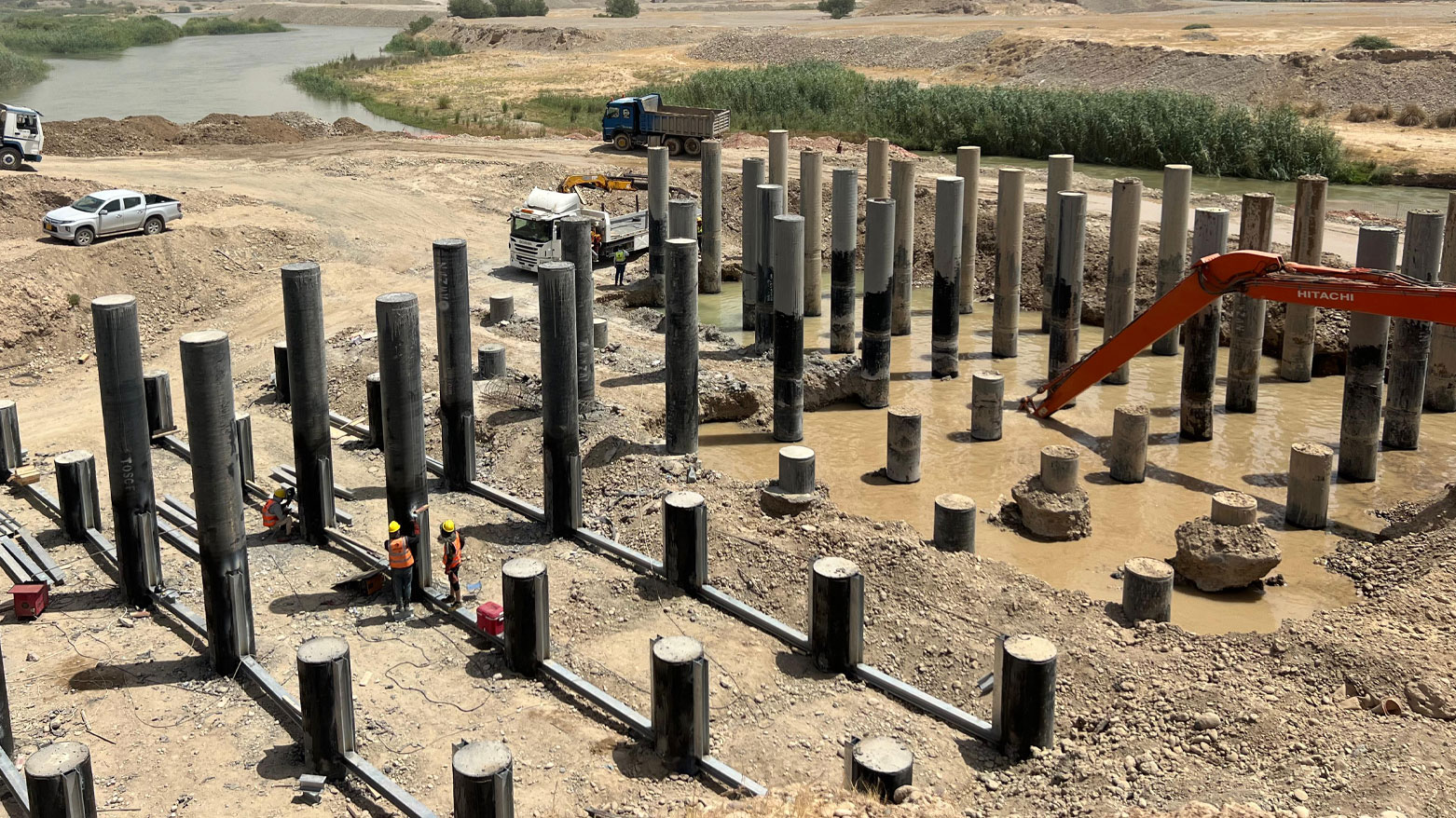KRG Water Project to End Decades-Long Shortage for 63,000+ Residents
The Qushtapa water project, costing over 222 billion dinars, will provide clean water to 72 villages and towns, benefiting 63,000+ people. It sources water from the Lesser Zab River, uses advanced treatment, and a 300-km pipeline network to ensure sustainable supply by year-end under KRG oversight.

By Kamaran Aziz
ERBIL (Kurdistan24) — The largest water infrastructure project in the Qushtapa subdistrict is expected to be completed by the end of this year, aiming to permanently address the region’s chronic water scarcity. With a total budget exceeding 222 billion dinars, the project will supply clean water to 72 villages, the town of Qushtapa, and the town of Bastana, directly benefiting more than 63,000 citizens.
Maher Hassan, head of the supervisory committee at the Directorate of Water and Sewage, confirmed to Kurdistan24 that the project was initiated under the direction of the Kurdistan Regional Government (KRG) Prime Minister. “Under the guidance of the Prime Minister of the Kurdistan Regional Government, it was decided that this project be implemented. This is to rescue the people of the region, because currently wells must be drilled 700 meters deep to access water, and even then the water is not suitable for supply,” he stated.
The project, once operational, will eliminate the need for 111 water wells, many of which have proven inefficient and unsustainable. According to the project blueprint, water is sourced from the Lesser Zab River, where 3,300 cubic meters are extracted daily. After undergoing multi-stage purification, 300 cubic meters are distributed daily to Qushtapa and surrounding villages.
The infrastructure includes three primary storage tanks and 15 secondary reservoirs. Water from the Lesser Zab passes through three advanced treatment units, after which it is purified and directed to regional stations. The system is designed with a maximum daily capacity of 72,000 cubic meters, ensuring long-term sustainability of the supply.
Ari Salim, director of the Qushtapa water project, detailed the technical components of the scheme, emphasizing its modern design and reach. He noted that water is drawn from the river using six high-capacity pumps and then sent to large clarifiers where sediment is removed. “In the second phase, the water is filtered and then sent to the main station, which has a capacity of 12,000 cubic meters,” Salim said.
He confirmed that as of now, 55 percent of the work has been completed. The distribution system involves a 300-kilometer network of pipes, with diameters ranging from 800 millimeters to 90 millimeters at final delivery points, ensuring that the purified water reaches individual households throughout the subdistrict.
The entire project, officially valued at 222 billion and 37 million dinars, is regarded as a landmark investment in public infrastructure by the KRG, with the goal of securing water access for the next two decades.
As climate change and population growth place increasing pressure on natural resources, the Qushtapa water project is being viewed as a strategic and timely intervention to safeguard regional stability, economic development, and public health in this rapidly growing part of the Kurdistan Region.
